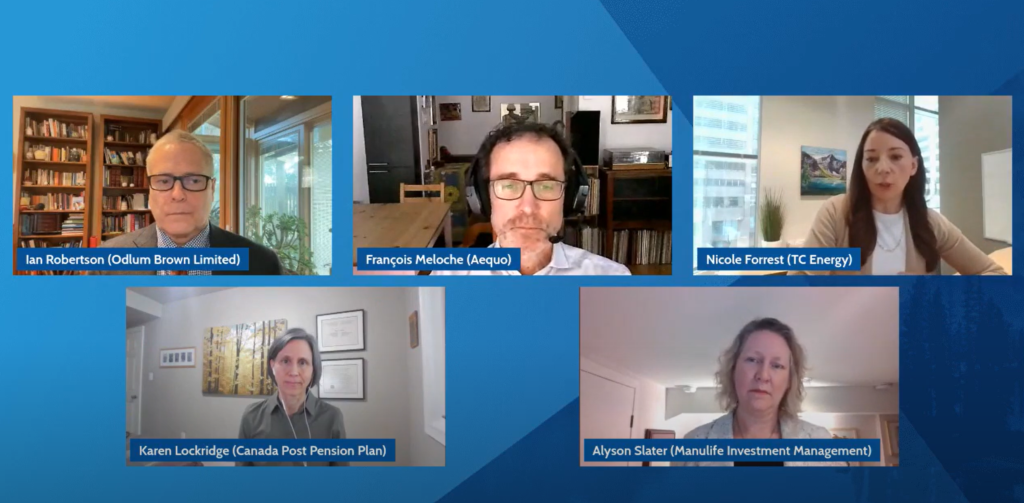In a recent virtual event, Climate Engagement Canada (CEC) investor participants joined a panel to discuss the dynamic between shareholders and corporate issuers in climate-related engagements. Entitled, “Engagement in Action: From Best Practices to Real Outcomes,” the discussion explored specific lessons and practical advice on how to engage with issuers effectively, informed by experts’ real-life examples and perspectives.
The session featured three engagement experts who are actively involved in CEC: François Meloche, Director of Corporate Engagement and Founding Partner at Æquo and a member of CEC’s Technical Committee; Alyson Slater, Managing Director of Sustainable Investment and Public Markets at Manulife; and Karen Lockridge, Director of ESG Investing at Canada Post Pension Plan, also Chair of the CEC Technical Committee. It also included Nicole Forrest, Director of Capital Markets ESG at TC Energy, a Canadian company engaging through CA100+, who provided the corporate issuer perspective to the conversation.
CEC Participants can view the full video through the Participant Portal here.
Session Highlights
The discussion began with a conversation on what engagement means from the different speakers’ perspectives. Alyson Slater emphasized that “stewardship and engagement are inseparable from good investing,” and provided insights on the “three big buckets” that her sustainable investment team uses to scale and unlock the power of engagement. First, “subject matter expertise,” which allows them to engage on a range of substantive matters, to prioritize systemically important risks and companies, and to identify a core set of material ESG issues. Second, “regional content” and the importance of tailoring engagement strategy across the regions in which they’re active in light of the various sustainability contexts that exist around the world. Finally, their overall system, including “policies, procedures for effective engagement, knowledge management, and monitoring of engagement activities.” These were key takeaways, providing real-life examples of engagement in action.

Karen Lockridge shared some more highlights of their collaboration with TC Energy through CA100+ and with TransAlta through CEC. She also shared more about her role as a lead investor on an engagement, and how the lead investor’s job is to “bring investors together, discuss the issues, and then engage with the company.” She mentioned how, as the lead investor, she often relies on the CA100+ Benchmark as a guide, with the indicators helping highlight which topics need to be brought up to companies.
The session, hosted by the Responsible Investment Association (RIA), a member of CEC’s co-secretariat, combines best practices with real experience to help investors better understand the role collaborative engagement in Canada’s transition to a Net-Zero economy. For more information on the resources and services provided by the CEC to participant investors, please contact us.